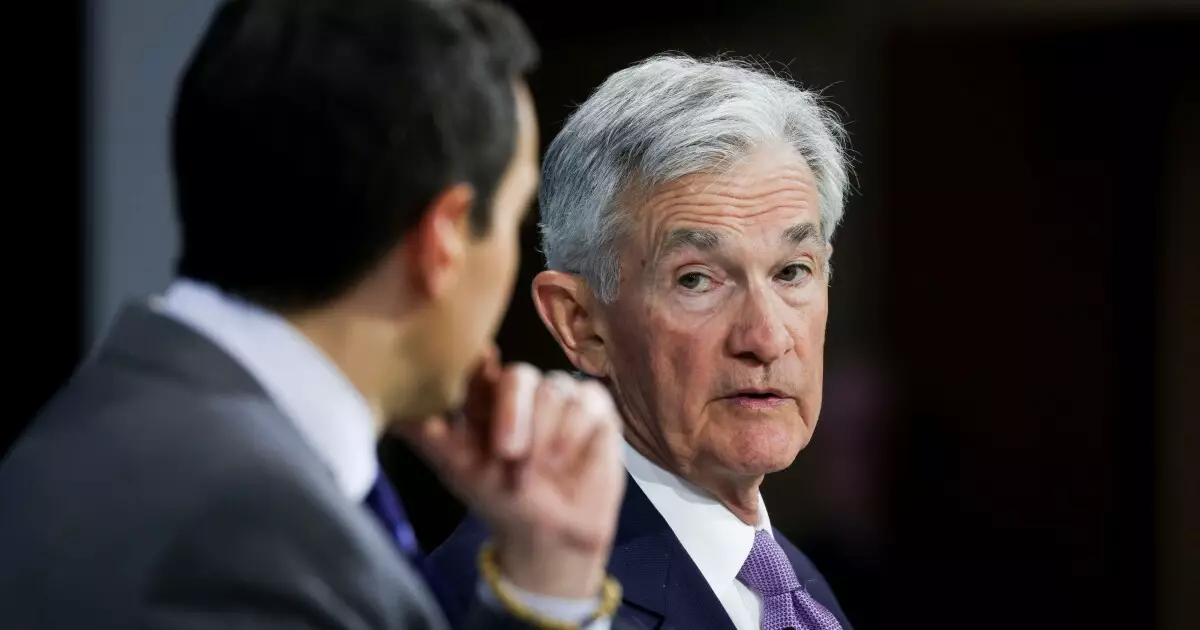In today’s complex financial ecosystem, the Federal Reserve Chair, Jerome Powell, has reiterated the institution’s unwavering commitment to independence amid shifting political tides. As the possibility of external influences on policy looms, it becomes increasingly crucial to dissect the relationship between the Fed and the political apparatus, particularly under the Trump administration. During his recent remarks at the New York Times’ Dealbook Summit, Powell’s commentary provided insight into his vision of operational integrity for the Federal Reserve.
One of the more intriguing concepts presented was the notion of a “shadow Fed chair,” a term suggested by Scott Bessent, initially rumored to be the prospective Treasury Secretary under President Trump. Bessent’s hypothesis indicated that early announcements regarding the Fed chair position could disrupt Powell’s authority as he approaches the end of his term in 2026. Powell, however, dismissed these concerns with a confident assertion: “I don’t think that’s on the table at all.” His conviction highlights an essential facet of the Federal Reserve’s structure, which is rooted in a long history of leadership and continuity, irrespective of the political currents surrounding it.
Powell emphasized that the traditional camaraderie between the Fed and the Treasury has been a cornerstone of American economic stability. “The Treasury secretary and the Fed chair have had breakfast or lunch together every week for 75 years,” he noted, underscoring the importance of trust and collaboration in fostering effective policy-making. This robust relationship is particularly critical during economic crises, where heightened cooperation can lead to better outcomes for citizens. The historical precedence set within this collaborative dynamic serves as a guiding principle for Powell as he anticipates continued synergy with the incoming administration.
One of the core tasks of the Federal Reserve is to remain politically independent—a point Powell strongly articulated during his interview. He clarified that the Fed must possess the autonomy to make decisions without undue political influence, apart from the legislative checks provided by Congress. This assurance is vital in preserving credibility among market participants who rely on the Fed’s guidance for financial stability. “That’s what gives us the ability to make these decisions for the benefit of all Americans,” Powell said, emphasizing the need for impartiality devoid of partisan interference.
As the Trump administration gears up for potential tariff implementation, Powell indicated the uncertainty surrounding these policies makes proactive adjustments problematic. The Fed’s current approach remains focused on real-time economic factors rather than speculative outcomes driven by political promises. “It’s too soon and there are too many unknowns,” Powell remarked, highlighting the complexities involved in foreseeing both the direct and indirect effects of tariffs. Caution is essential, as the trajectory of these policies could significantly alter the economic landscape, necessitating adaptive responses.
Powell also addressed the rapidly evolving world of cryptocurrency, suggesting that while the Federal Reserve plays a narrow role in the regulation of digital assets, it is essential to ensure that these innovations do not jeopardize the existing banking system. He described the importance of consumer protection as financial products transition towards crypto assets, stating that individuals must understand what they are engaging with fundamentally. This supervisory framework will function as a guideline to foster safety and soundness within financial markets.
As we navigate through an era of transformation driven by technological advancements and political shifts, the strength of the Federal Reserve’s independence will be put to the test. Powell’s assurance of a constructive relationship with the upcoming Trump administration, alongside his commitment to maintaining operational autonomy, signal a measured approach as the institution faces new challenges. The Fed must adeptly balance collaboration with independence, all while securing the economic welfare of the American populace in an unpredictable financial landscape.

